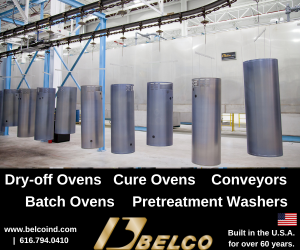BLISTERING USING AIRLESS SPRAY
The logical approach would be to slow down the solvent balance a bit to assure flow, but with airless you have to be careful not to sag. Do you think that this is a plausible explanation for the blisters?
Q. It is amazing that no matter how much technology has changed, much remains the same. I read the question from J. K. in the October Painting Clinic concerning blistering of the paint film when his airless equipment is used. Although you did cover some of the causes such as flash off or too fast a solvent, I had the same problem several years ago. The explanation given to me at that time was that it was caused by compression of the paint by the pump through the tip orifice.
Once the paint hits the substrate, the solvents expand and cause the blisters in the film. To be perfectly frank, I don’t know if this is a valid possible cause for the blisters. The logical approach would be to slow down the solvent balance a bit to assure flow, but with airless you have to be careful not to sag. I don’t remember if I did that or reduced the pump pressure a bit. But I did solve the problem. Do you think that this is a plausible explanation for the blisters? S.B.
A. This is not a plausible explanation for blistering in a paint film applied by airless spray. Looking at the physics of airless spraying, I don’t think expansion of solvents in a paint film, without any other driving force, is a plausible explanation for blistering. Expansion of the liquid paint, containing both vehicle and solvents, occurs as it is exiting through the tip orifice. This the phenomenon that causes atomization of the liquid paint. Unless there is some other driving force, like rapid heating of the film or a rapid pressure reduction (vacuum), the solvents have done all the expanding they are going to do.
Related Content
-
Surface Prep Solution for Rusted Rebar in Concrete
Julie Holmquist of Cortec Corporation discusses passivating corrosion on rebar and other reinforcing metals.
-
Intumescent Coating Provides Up to 3 Hours of Fire Protection
PPG Steelguard 951 coating is designed to provide protection against fire and corrosion.
-
Products Finishing Reveals 2024 Qualifying Top Shops
PF reveals the qualifying shops in its annual Top Shops Benchmarking Survey — a program designed to offer shops insights into their overall performance in the industry.












